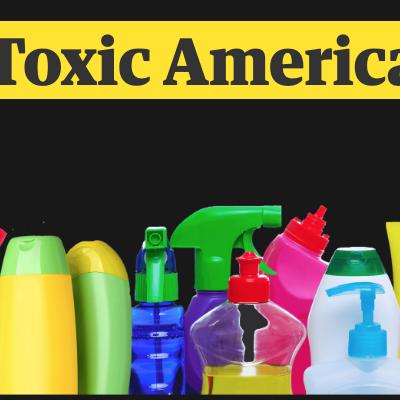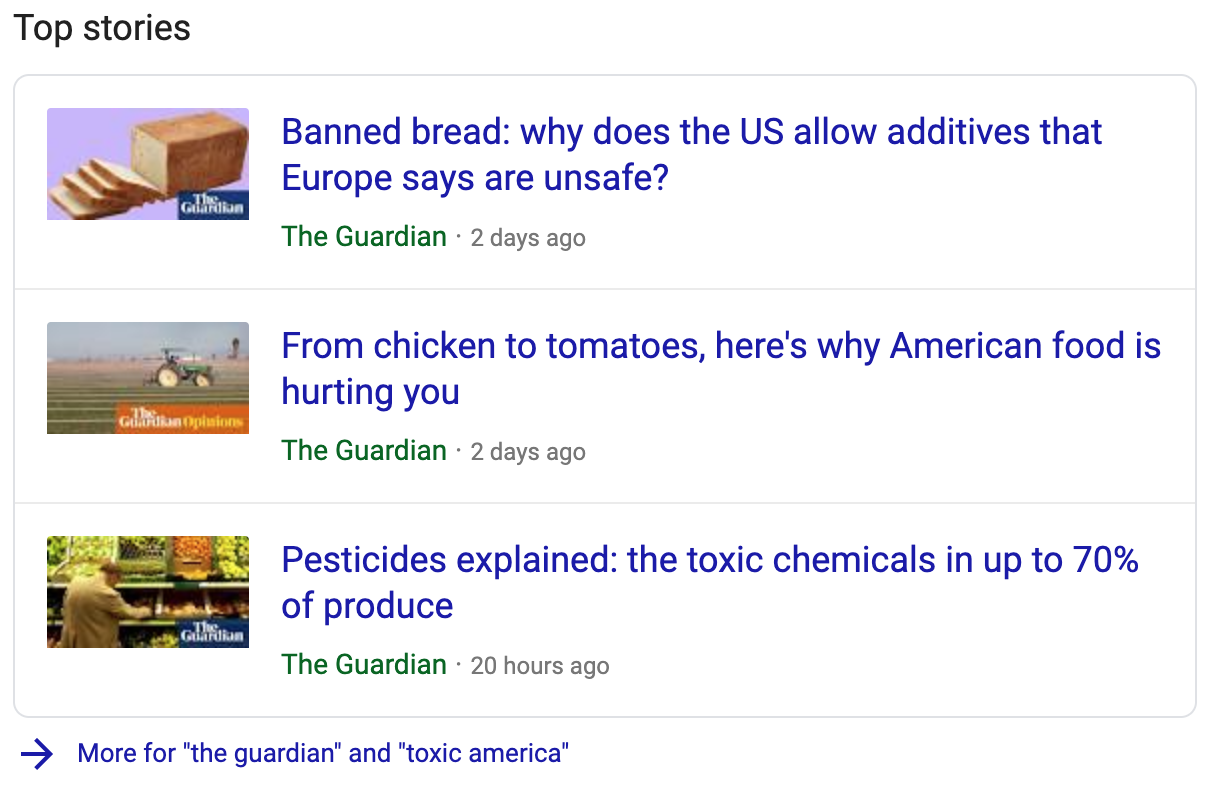
When I was editor of RealClearScience, we considered The Guardian to be a daily must-read. The reason is because they had an excellent science section, featuring writers like Ian Sample and Mo Costandi, as well as a solid science blog.
Well, times have changed. As is often the case with media outlets, when bills start to pile up, the science section is usually among the first to go. The Guardian axed its science blog in August 2018. Then, apparently, they found a new moneymaker in spreading chemophobia and anti-Americanism with a new series titled "Toxic America."
The section is every bit as dreadful as it sounds. Chemicals are everywhere, they're killing you, and gun-toting Americans are to blame. That's not hyperbole. Here's what The Guardian wrote in its inaugural article:
The American public is routinely exposed to toxic chemicals that have long been banned in countries such as the UK, Germany and France. If they’re deemed harmful in those countries, why not in the US? We will examine the power of the $640bn chemical industry – which has a lobby that’s currently better funded than the NRA.
After hinting at the corrupting power of money, The Guardian then unironically asks you to send them $150,000.
Toxic America: The Guardian Spreads Chemophobia and Anti-Americanism
 It's not a big secret that the British far left is anti-American. That's been the case for a very long time. The following quote about potential prime minister and current Labour Party Leader Jeremy Corbyn comes not from an American conservative or Trump supporter, but from an editorial by the Washington Post in 2015:
It's not a big secret that the British far left is anti-American. That's been the case for a very long time. The following quote about potential prime minister and current Labour Party Leader Jeremy Corbyn comes not from an American conservative or Trump supporter, but from an editorial by the Washington Post in 2015:
"[Corbyn's leadership victory] validated a radically anti-American agenda that could accentuate Britain’s drift away from the trans-Atlantic partnership. Mr. Corbyn espouses a foreign policy whose guiding principle is to oppose the United States and Israel by all means."
We have no stake in the outcome of British politics. The point we are making is that The Guardian is preaching to a choir ready and willing to lap up whatever anti-American venom it plans to spew. Adding in conspiracy theories about chemical, biotech, and pharmaceutical companies simply makes the anti-Americanism that much tastier. It's a formula that has worked extremely well for RT, a Russian propaganda TV channel that also spreads anti-Americanism and disinformation about science.
Let's return to that inaugural article for Toxic America for an example of the sort of disinformation The Guardian is spreading. The author writes:
"It’s possible to find formaldehyde, a known carcinogen banned in cosmetics sold throughout the European Union, in US hair-straightening treatments and nail polish."
That's all true, but it's only half true (the worst kind of truth). What the author leaves out is that your very own body produces and disposes of more formaldehyde every single day than you are exposed to from outside sources. Why? Because formaldehyde is needed to make DNA, so you would be dead with out it, as chemist Dr. Josh Bloom explained.
 Every other article in the Toxic America series is similarly full of egregious half-truths and distortions. One particularly bad one claims that chemicals are costing Americans IQ points, disregarding the well-known observation that IQ has been rising over time, a phenomenon known as the Flynn effect. Besides, even if trace amounts of chemicals are making us dumber (an unlikely hypothesis), the IQs of Americans still seem to be increasing.
Every other article in the Toxic America series is similarly full of egregious half-truths and distortions. One particularly bad one claims that chemicals are costing Americans IQ points, disregarding the well-known observation that IQ has been rising over time, a phenomenon known as the Flynn effect. Besides, even if trace amounts of chemicals are making us dumber (an unlikely hypothesis), the IQs of Americans still seem to be increasing.
Perhaps the worst article on the site encourages people to buy organic food to avoid "chemicals." It is written by Carey Gillam, an activist who is paid by the organic industry. Nowhere is that mentioned in the article. The article is literally an advertisement for the organic industry masquerading as journalism.
That's par for the course, according to the Genetic Literacy Project. In their essay exposing the lies behind Toxic America, Andrew Porterfield and Jon Entine write that The Guardian:
"...relied most heavily on freelancers, some of whom have little to no expertise on the subjects they opined about. Most critically, the series has so far included no articles written by independent scientists who have conducted primary research on chemical-related issues. Instead, the newspaper contracted with well-known activist organizations to write guest articles—in some cases groups whose viewpoints are controversial and often in conflict with the scientific mainstream. [Emphasis added]
The bottom line, as eloquently summarized by the Genetic Literacy Project, is this: "The Guardian recruited activist groups to author straight news pieces and did not disclose it." And to get extra clicks, they gave it an anti-American flavor, as well.
Such is the state of journalism in 2019.



